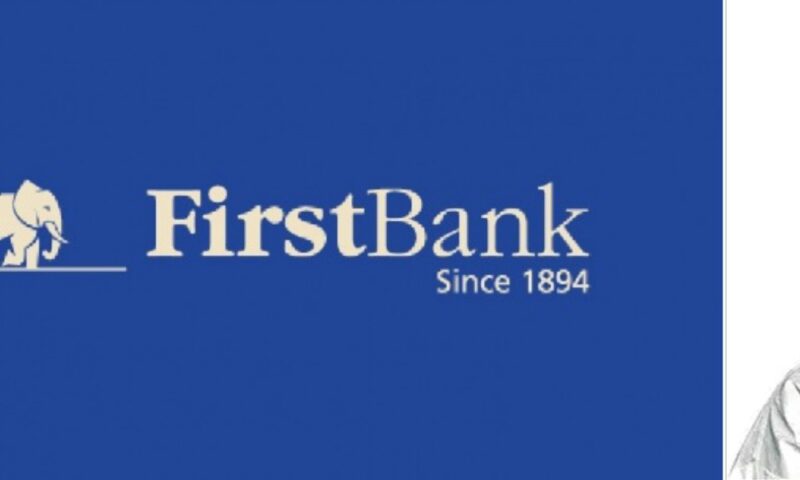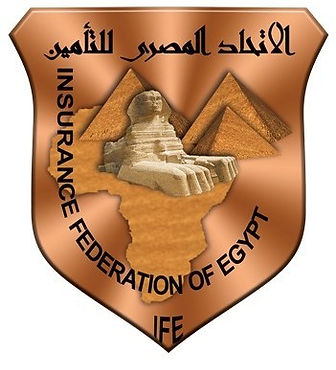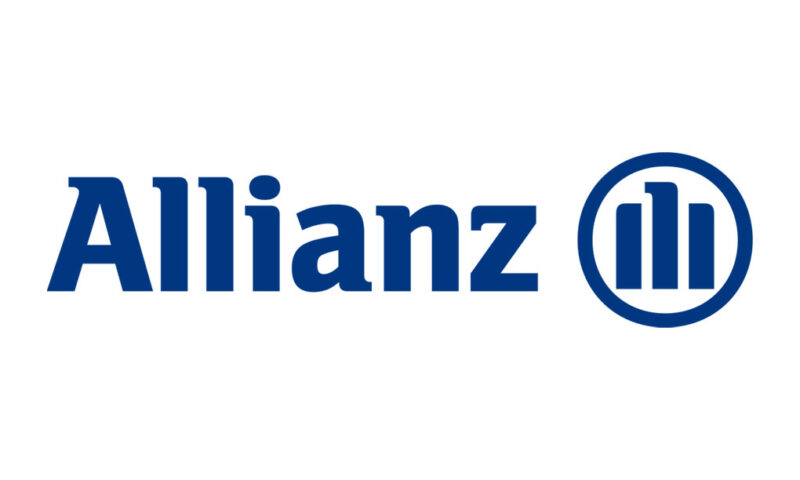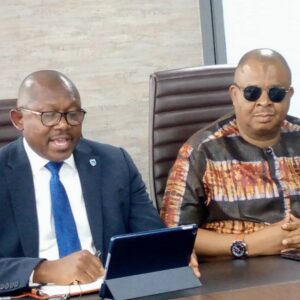All Posts in "Day: July 24, 2023"
The return of large scale Oil and Gas & ramifications of Angola’s growing downstream sector
By Favour Nnabugwu
International oil companies (IOCs) are driving multiple exploration and production projects including Kaombo North, the Eastern and Western hubs at Block 15/06 operated by Eni Angola.
The IOC as well as CLOV Phase 2 and Dalia Phase 3 at Block 17 operated by TotalEnergies.
And earlier this year, Angola surpassed Nigeria as the top oil-producing country in Africa. In April, Angola produced 1.06 million barrels per day (bpd) of crude oil, while Nigeria and Algeria both produced 0.999 million bpd.
While the outlook for Angola’s upstream industry is more than optimistic, the country’s downstream sector still has some way to go. Currently, Angola’s sole operational refinery is the Luanda Refinery, which has only been able to meet 20% of the country’s demand for refined products.
As a result of this lack of infrastructure, Angola spends over USD1.7 billion annually on oil imports despite vast petroleum reserves totaling approximately 9 billion barrels of oil and 11 trillion cubic feet of natural gas.
But even here, the outlook is promising. Angolan President João Lourenço and Minister of Mineral Resources, Oil, and Gas, Diamantino Azevedo have made strengthening the country’s oil and gas refining capacity a priority.
Their objectives are to meet domestic energy demand, reduce oil imports, and maximize the monetization of energy resources for regional and global markets.
These efforts got off to a strong start in 2022, when Angola expanded the Luanda Refinery in cooperation with Italian oil major, Eni, increasing the plant’s daily production to 1,200 metric tonnes per day.
In addition, several new facilities, namely the Cabinda, Soyo, and Lobito refineries, are in the works
Phase 1 of the Cabinda refinery — a 30,000 bpd crude unit that produces diesel, heavy fuel, jet fuel, and naphtha — is expected to be operational in mid-2024. Cabinda’s capacity will double to 60,000 bpd when the final phase of construction is completed.
As recently as this month, Africa Finance Corporation and African Export-Import Bank (Afreximbank) announced a USD335 million credit facility for the project, which will cover the first phase of construction. The refinery is being developed by the UK’s Gemcorp Holding Limited (GHL) in partnership with Angola’s national oil company, Sonangol.
The Soyo refinery project is scheduled to be completed in 2025. Angola’s Ministry of Mineral Resources and Petroleum has awarded the tender for the construction of the 100,000-bpd refinery in Soyo to U.S.-based Quanten Consortium Angola LLC. The consortium will design, build, own, and operate the deep-conversion refinery. In addition to the refinery, Quanten will develop a tank farm, marine terminal, and infrastructure there.
Furthermore, a 200,000-bpd refinery in Lobito province is being developed, with services provided by Japanese conglomerate JGC Holdings. Sonangol has signed a memorandum of understanding (MoU) with China National Chemical Engineering (CNCEC) for the construction of this refinery. The MoU aims to secure financing for the project and may lead to a contract for construction by the Chinese company. The refinery, expected to be operational by 2026, will have a capacity of producing up to 200,000 bpd.
In 2022, Minister Azevedo said that building refineries and modernizing the existing one would allow Angola to sustain its energy supply and reduce the steep costs associated with energy imports. He and President Lourenço have continued to move the country closer to realizing those benefits — and several others.
Scaling up its refining capacity will enable Angola to maximize the monetization of its energy resources. With new projects like Eni’s Ndungu Early Production Project and TotalEnergies’ CLOV floating production, storage, and offloading unit, Angola aims to trade ready-to-use fuels with Europe, reducing Europe’s reliance on Russian resources.
Further, downstream activities such as marketing and distribution will set the stage for job creation and business opportunities, from running service stations to supplying lubricant oils.
Also important, Angola will be better positioned to meet regional energy demands. As more refineries come online, Angola can utilize such cross-border trade systems as the Central African Pipeline System and the Angola-Zambia pipeline to deliver refined products to other African countries
Driving growth in Angola’s downstream sector is only one example of the steps Angola’s government has taken in recent years to strengthen the country’s energy industry.
To attract investment and further encourage production, the Angolan government has implemented extensive reforms, including simplifying control mechanisms, offering fiscal incentives for the development of marginal oil fields, establishing regulations for well abandonment and decommissioning, and enacting the country’s first natural gas law.
The African Energy Chamber sees the efforts by President Lourenço and Minister Azevedo as major wins for Angola that will help ensure ongoing foreign investment, energy security, and economic growth.
Egyptian insurance market showing resilience despite economic challenge – AM Best
By Favour Nnabugwu
With interest rates and inflation continuing to rise, the Egyptian insurance market is facing difficulties in sustaining growth rates in real terms, however the country is still proving resilient in the face of challenging economic conditions they are facing throughout 2023.
Across the previous five years, the sector has grown by a compound annual rate of 17.5% per annum, as measured in NWP denominated in Egyptian pounds (EGP), with 2022 marking the sixth consecutive year of growth.
Global ratings agency AM Best stated in a new report that it expects premium growth to persist in the coming years, supported by the potential for mandatory insurance products, and the digitalisation of distribution, which can increase insurance penetration (albeit from a low base).
Approximately 40 companies are licensed to operate in the Egyptian insurance market, with non-life companies outnumbering life insurers.
Moreover, Egypt’s GDP achieved 6.6% growth in the 2022 fiscal year (1 July 2021 – 30 June 2022), which was substantially higher than most emerging markets, as the effects of the COVID-19 pandemic continued to decrease.
Tremor – The modern way to place reinsurance
However, a lower rate of GDP growth is forecast by the International Monetary Fund (IMF) for 2023. This is mostly due to the high financing costs the country is facing, as well as the continued backlog of imports, and as a rationing of foreign currency following the depreciation of the Egyptian pound.
Meanwhile, Best also highlighted how legislative changes and the introduction of new accounting standards in 2023 are expected to impact Egypt’s insurers.
The ratings agency noted that a new insurance act is expected to be approved, with a key provision of the act being the introduction of higher minimum capital requirements for insurers based on the lines of business written.
As a result, Best expects this to be a positive factor for the overall capital adequacy of the sector, while smaller insurers who do not meet the requirements may potentially face significant pressure to merge if they are unable to raise sufficient additional capital.
In addition to new legislation, insurance companies in Egypt are also adopting new accounting standards—IFRS 9 and IFRS 17. In contrast to other insurance markets, where regulators have allowed insurers to delay IFRS 9 implementation so they can be aligned with IFRS 17, the Financial Regulatory Authority has required Egypt’s insurers to implement IFRS 9 in advance of IFRS 17.
There is currently an expectation that the implementation of IFRS 17 will be complete by 30 June 2024, following the implementation of IFRS 9 in 2022. The two-year gap is seen as sufficient to allow Egypt’s insurers to deal with any implementation challenges that they possibly could face.
In other news, AM Best recently revised the outlook to positive from stable for the Long-Term Issuer Credit Ratings and also affirmed the Financial Strength Ratings of A (Excellent) and the Long-Term ICRs of “a” (Excellent) of specialist re/insurer Beazley’s subsidiaries
Allianz Commercial launches in global property & casualty markets
By Favour Nnabugwu
Allianz Global Corporate & Specialty (AGCS) together with the commercial insurance business of local Allianz Property & Casualty (P&C) entities will begin to trade as “Allianz Commercial” as one go-to-market business offering insurance solutions for mid-sized businesses, large enterprises and specialist risks.
AGCS, as a global carrier, and Allianz’s commercial businesses in markets such as Australia, France, Germany and UK will officially adopt the new trading name of Allianz Commercial as of today, while other countries will be moving to the new integrated model and trading identity in the coming months.
Chris Townsend, Member of the Allianz SE Board of Management, comments: “Our commercial businesses have been united in ONE global model. With Allianz Commercial, we can service a fuller, more dynamic range of customers under our new unifying name – this gives us an immense competitive advantage and a compelling customer value proposition across the commercial insurance market, rooted in simplicity and consistency.
Allianz Commercial is also moving to a new structure with 11 new regions which brings together the current six regional units of AGCS with Allianz’s national Commercial businesses. Each region is led by one Commercial Managing Director representing the integrated Allianz Commercial business to customers and distribution partners with a more consistent trading approach and a wider set of solutions. These regions have been designed to reflect market characteristics, broker and distribution practices, and geographic proximity.
Allianz Commercial CEO Joachim Mueller comments: “The new regional set-up gives us the optimum footprint in all major commercial markets worldwide. We will be able to play the full market in one consistent approach with advanced product solutions, which are grounded in global industry and underwriting expertise and delivered with local market knowledge.
As previously announced, Joachim Mueller will lead Allianz Commercial as part of his responsibilities as CEO of AGCS SE. From the regulatory and licensing perspective, and to ensure local continuity, the legal names of AGCS companies and the various Allianz P&C entities such as Allianz Versicherungs-AG or Allianz France will remain. Similarly, each legal carrier will retain its existing financial strength rating. In 2022, the integrated business of Allianz Commercial generated more than €19 billion gross premium globally.
Allianz Commercial will serve a wide range of business customers around the globe ranging from global multinationals to family-owned and mid-sized enterprises, which are the backbone of the economy in many countries, as well as unique and complex risks such as offshore wind parks, shipping or aviation fleets or Hollywood film productions.
To all these customers Allianz Commercial provides a wide range of traditional and alternative risk transfer solutions, risk consulting and global program services (Allianz Multinational) as well as seamless claims handling.
Vehicle owners to benefit huge claims on revised premium for motor policy
CAPTION
L– Chairman, publicity sub committee of the insurers committee and the Head of Corporate Communications and Market Development, Mr Rasaaq Salami,
By Favour Nnabugwu
Vehicle owners in the country can now benefit huge claims in the event of accident for self and third party damage liabilities, snd in event of loss of vehicle following review of the premium rate for motor insurance in the country.
The insurance companies under the watch of the National Insurance Commission (NAICOM) in the new era of increased benefits wants insured vehicles get compensated adequate enough to meet their liability costs, particularly now that inflation and FX shortage have pushed up cost of living.
The Federal Government, through the National Insurance Commission (NAICOM) in December 2022 reviewed the premium rate for motor insurance in Nigeria to become effective 1st January 2023.
In the new directive, private vehicles that were paying N5,000 premium for N1 million Third Party Property Damage (TPPD) limit, are now to pay N15,000 premium for N3 million TPPD, while owner good vehicles are to pay N20, 000 premium for N5 million claims limit, and staff busses are to pay N20,000 premium for N3 million claims limit.
This is contained in a circular issued 22nd of December 2022 by NAICOM and sent to all insurance institutions, and signed by Leonard Akah, Director, Policy and Regulation at the Commission on behalf of the Commissioner for Insurance.
The circular reads, “pursuant to the exercise of its function of approving rates of insurance premium under section 7 of NAICOM Act 1997 and other extant laws, the commission hereby issue this circular on the new Motor Insurance Premium rates effective from 1st January 2023.”
For commercial trucks and general cartage, they are to pay N100,000 premium for N5 million TPPD limit; Tricycles N5,000 for N2 million TPPD limit, and Motor Cycles N3,000 for N1 million TPPD limit.
While for comprehensive motor insurance policy, premium rate shall not be less than 5% of the sum insured after all rebates and discount.
Beyond this, the review also offer motorists plying the ECOWAS Region the benefits of third party liability protection under the ECOWAS Brown Card Scheme.
The card provides motorist complete guarantee for a prompt, fair and immediate compensation for any accident that may occur outside his habitual residence country.
According to the National Insurance Commission, ECOWAS Brown card used by motorists plying within West Africa sub-region had been captured in the revised premium for third party motor insurance.
This means a registered Nigerian vehicle with third-party motor insurance automatically purchased ECOWAS brown card and is covered when in and around any of the West African countries. While motorist from other West African countries into Nigeria will get third party compensation in event of accident with a Nigerian vehicle.
Industry analysts who responded to the concerns raised by some Nigerians on the timing of reviewing the Premium rates for the Third Party Insurance noted that there is not any particularly good time to raise a fee, adding that the focus of most commentators on the premium increase has been the hike rather than the attendant benefits.
Speaking on the issue, Mr. Muyiwa Awodire, a Regional Manager at Linkage Assurance Plc, said the premium hike came after 19 years.
“The last time we had an increase in premium for third party motor insurance was in 2004. Now, if you consider the rate of inflation over the past 19 years, you will realise that the increase is long overdue,” Awodire said.
He added, “But beyond the hike, let us also consider the benefits. Until December 2022, the highest claim any one could make on third party motor insurance was N1 million because that was the limit. But that has changed now.
A policy holder can make claim of up to N3 million. We all know how expensive vehicles have become now. So, it is in the interest of policyholders that they embrace the increase. While it is true that no one prays for an accident, the indubitable fact is that accidents do happen. When they happen, the insurance companies are on hand to mitigate the loss. So, people should shift their focus from just the cost and consider the benefits. The benefits, in my opinion, outweigh the cost.”
Similarly, the Nigeria Employers’ Consultative Association (NECA) has said that the premium increase would be beneficial to the economy.
The Director General, NECA, Adewale-Smatt Oyerinde, in a media interview said “In order to grow the economy, develop the industry and provide effective risk-mitigating services to the generality of Nigerians, it is our belief that a marginal adjustment in the current rate is desirable.”
While emphasizing the need for NAICOM to carry all stakeholders along in the implementation of the new policy, NECA said given that the just changed rate had been operated for about 19 years while the cost of motor vehicles had increased exponentially, the rate adjustment was not out of order.
Also speaking on the benefit of the premium increase, NAICOM’s Head of Corporate Communications and Market Development, Mr Rasaaq Salami, noted that the ECOWAS Brown card had been captured in the new premium for third party motor insurance.
According to him, motorists driving within the West Africa sub-region would not need to get the ECOWAS Brown Card again once they had the third party insurance cover issued by Nigerian companies.
He stated that the brown card provides motorists complete guarantee for a prompt, fair and immediate compensation for any accident that may be caused by them outside their country of residence.





